Brain cancers are the leading cause of cancer-related deaths in children. A significant percentage of these tumors are classified as gliomas—diseases for which new therapies are desperately needed. A protein called tyrosine kinase FGFR1 is altered in 10% of pediatric gliomas. Dr. Apfelbaum aims to investigate critical genes in FGFR1-altered pediatric gliomas to understand the biological mechanisms driving these cancers. Her research hopes to uncover new therapeutic targets and mechanisms of FGFR1-mediated oncogenesis in pediatric gliomas, but since FGFR1 is commonly altered in many tumors, her findings may reveal a common oncogenic mechanism. Dr. Apfelbaum received her PhD from University of Michigan, Ann Arbor and her BS from Beloit College, Beloit.
Pediatric Cancer
Current Projects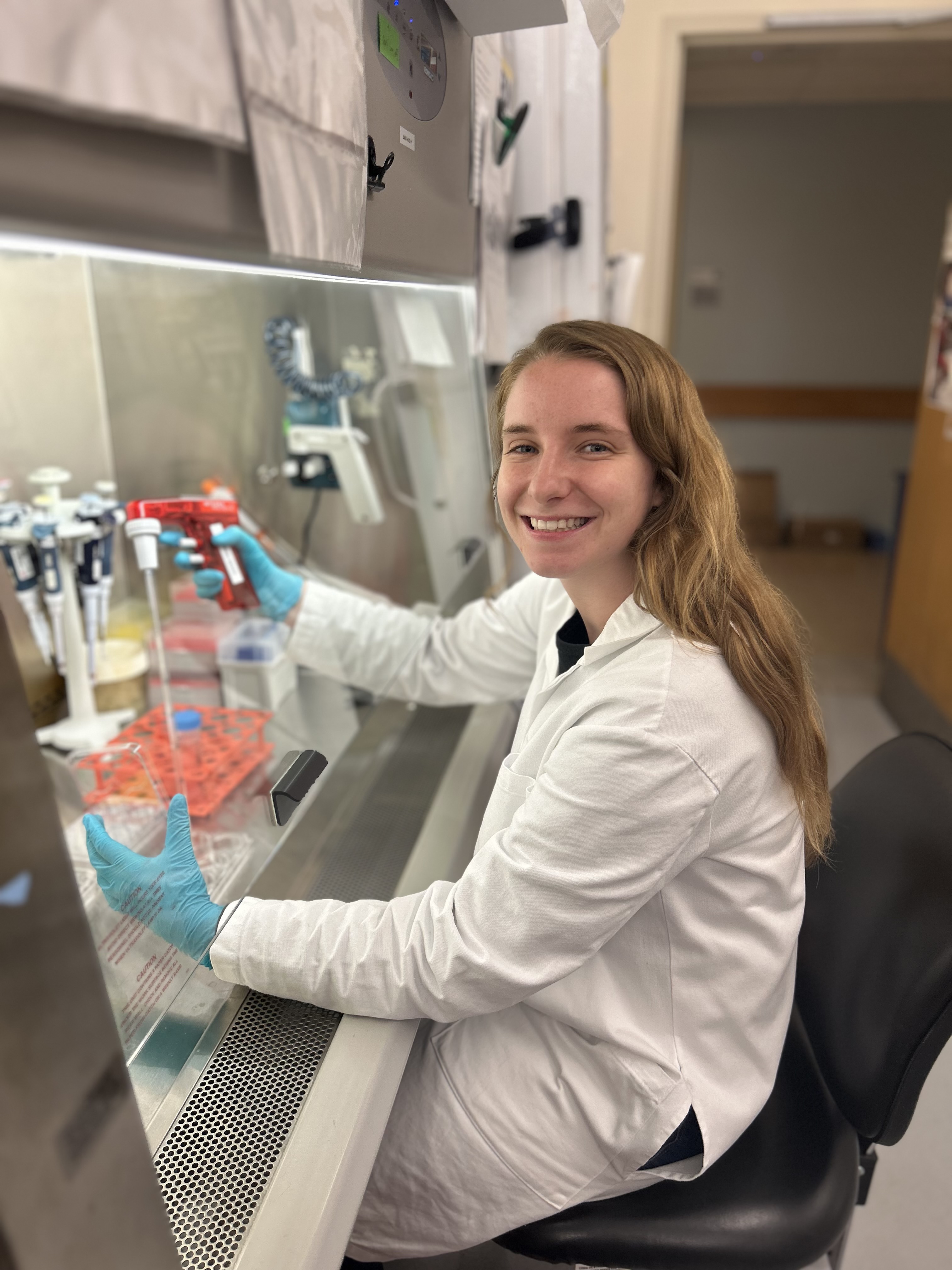
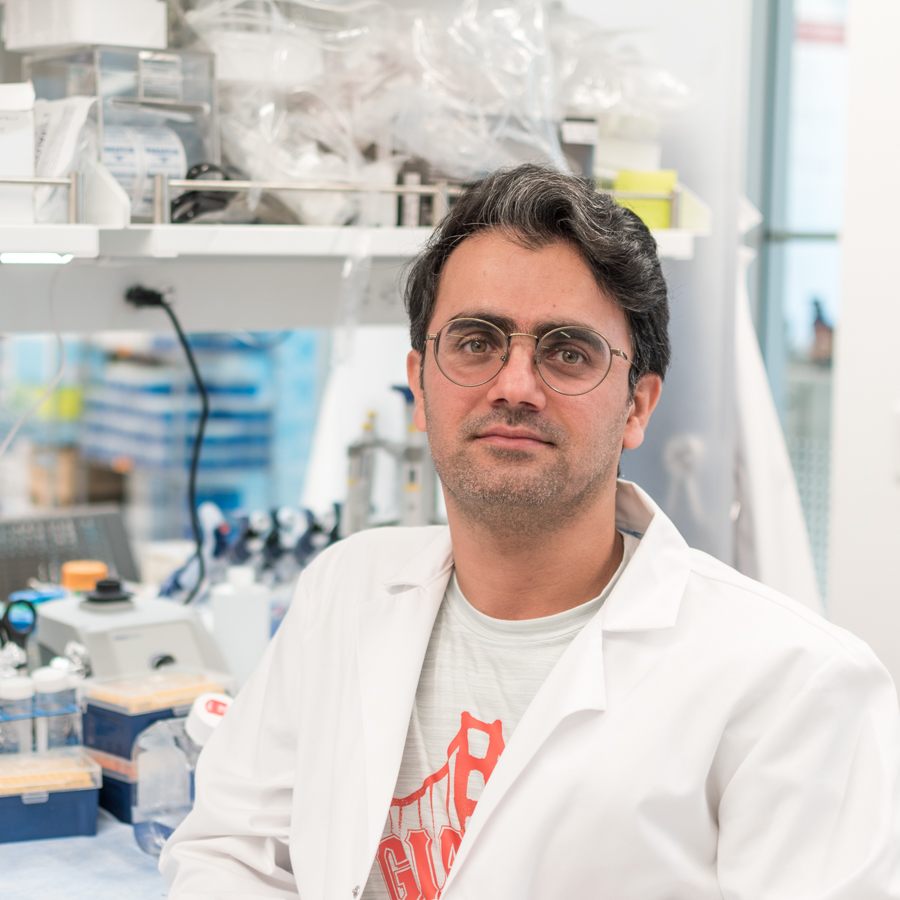
One of the persistent challenges in treating high-risk pediatric leukemia, particularly in cases of acute megakaryoblastic leukemia (AMKL), is the high incidence of relapse due to resistance to standard treatments such as chemotherapy and bone marrow transplantation. T cell therapy has shown potential in treating various types of leukemia, offering the prospect of overcoming mechanisms that tumor cells employ to evade traditional therapies. However, a significant challenge in T cell therapy for AMKL lies in identifying T cells that are able to recognize and target leukemia cells specifically. Dr. Balood’s research is dedicated to advancing T cell therapy for AMKL. He plans to test and identify T cell clones that specifically recognize and eliminate leukemia cells with the goal of translating these findings into an effective T cell therapy with minimal toxicity in leukemia patients. Dr. Balood received his PhD from University of Montreal School of Medicine, Montreal, his MS from Tarbiat Modares University School of Medicine, Tehran, and his BS from Shahid Chamran University of Ahvaz, Ahvaz.
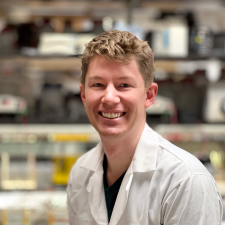
About 70% of pediatric leukemias and 10% of adult leukemias are caused by a genetic disruption in which the mixed lineage leukemia (MLL) 1 gene breaks off and attaches to a different chromosome. This event, known as a chromosomal translocation, gives rise to a distinct subset of leukemias called MLL-rearranged acute myeloid and lymphoblastic leukemias (AML or ALL). Novel treatments for these cancers represent a major unmet medical need. However, the development of therapeutics is hampered by a lack of basic understanding of how the MLL translocations disrupt the function of affected cancer cells. Dr. Farnung will use biophysical and structural biology approaches to visualize how MLL translocations function at the atomic level and influence the important process of gene transcription. His work will elucidate the precise molecular mechanisms that drive acute leukemias and provide a platform for the development of novel therapeutic strategies against these cancers.
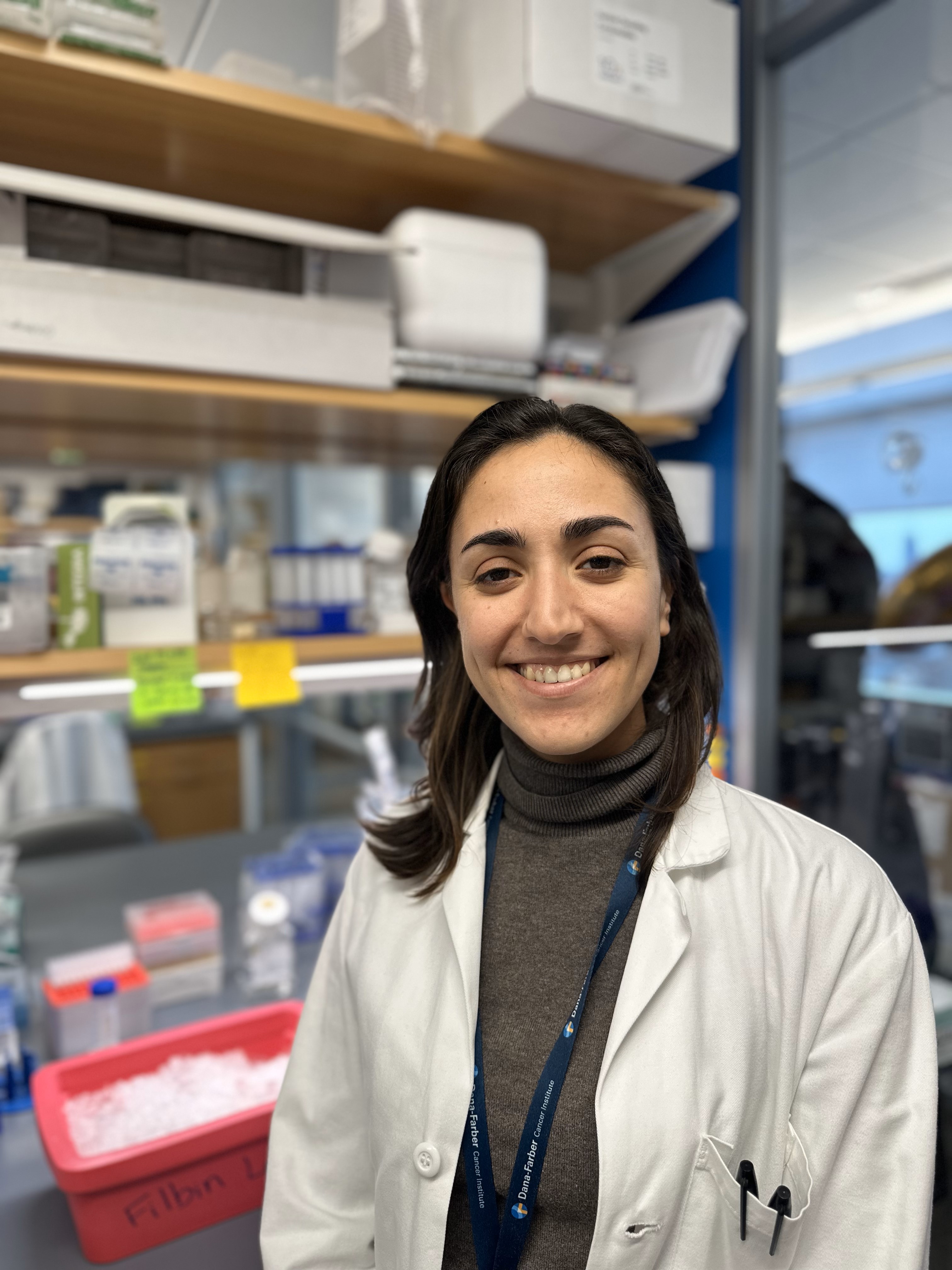
Pediatric diffuse midline gliomas (DMG) are incurable brain cancers with no long-term survivors. To date, radiation therapy remains the standard of care but improves survival by only a few months. Despite intense research efforts over the past four decades, there is still a lack of mechanistic understanding of the biology underlying DMG radioresistance. Dr. Lo Cascio is studying how DMG tumors exploit interactions with surrounding normal neurons to survive radiation-induced cell death. While there is ample evidence that communication between neurons and DMG cells is critical to fuel tumor growth, whether this neuron-glioma crosstalk contributes to treatment failure is unknown. Dr. Lo Cascio hopes by pushing the boundaries of our knowledge of the neuron-glioma intercellular dialogue, she can identify resistance mechanisms that can be targeted to sensitize these lethal tumors to radiation therapy. Dr. Lo Cascio received her PhD from Arizona State University, Tempe and her BS from University of Bath, Bath.
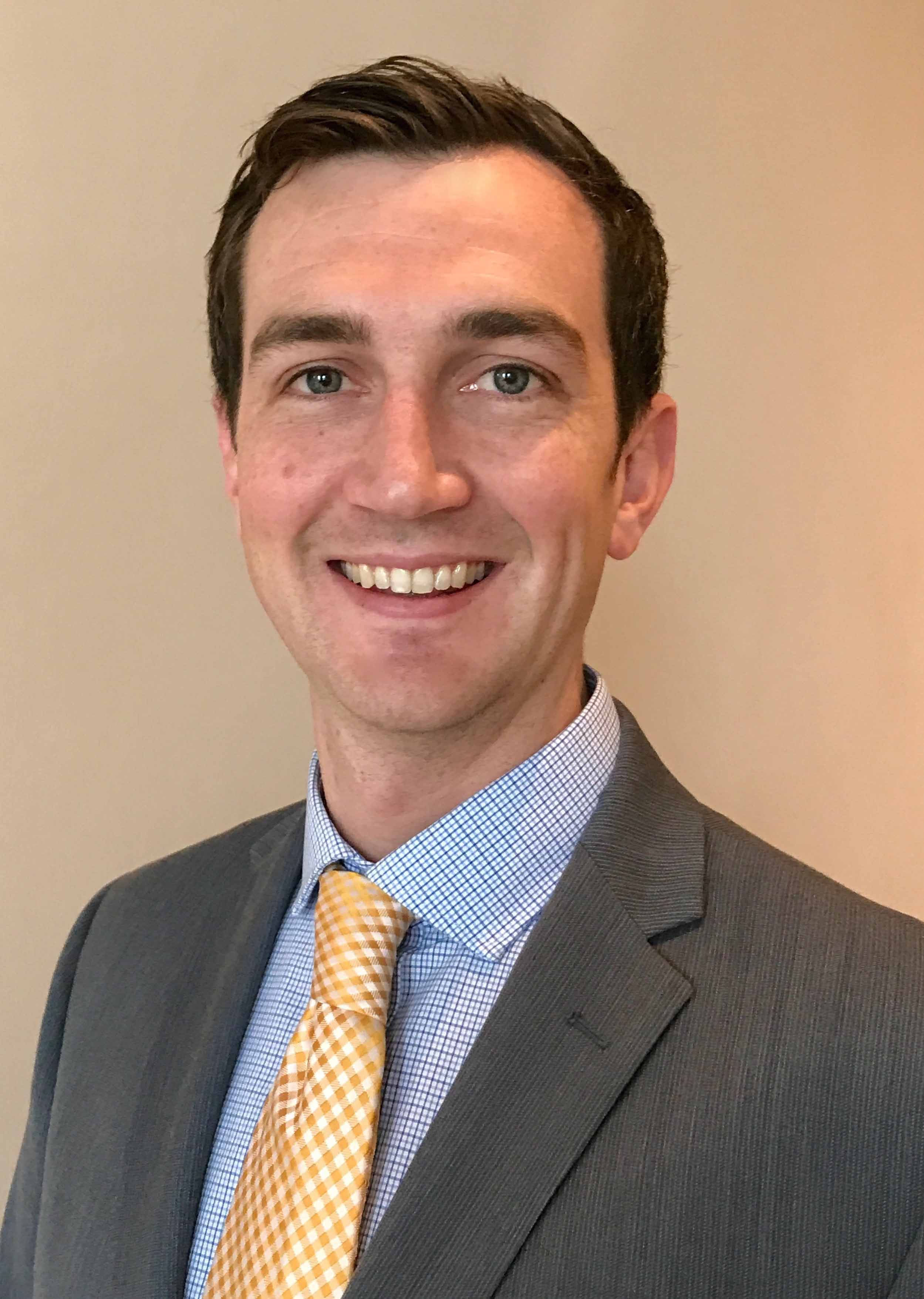
Osteosarcoma is the most common bone tumor and primarily affects children and adolescents. Unfortunately, treatment approaches and outcomes for osteosarcoma patients have not significantly improved for 40 years. Dr. Morrow’s work is focused on understanding normal bone development and how this development goes awry, giving rise to osteosarcoma. He hopes this improved understanding will lead to new treatment approaches for pediatric osteosarcoma patients. Dr. Morrow received his MD and PhD from Case Western Reserve University School of Medicine, Cleveland and his BS from The Pennsylvania State University, State College.
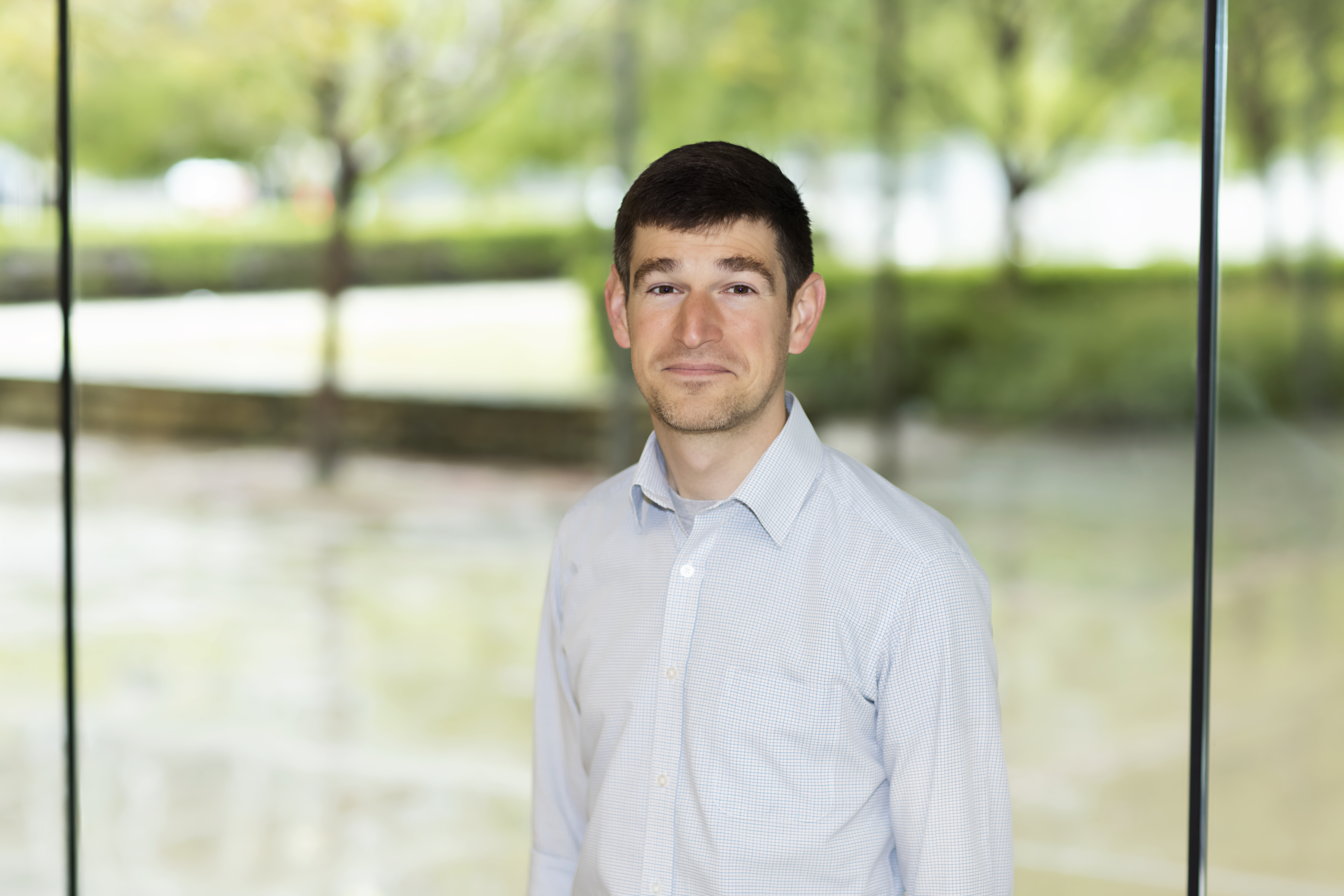
Leukemia is a cancer of the immune system and is a major cause of death from cancer in children and young adults. Chimeric antigen receptor (CAR) T cell therapy, which involves genetic engineering of a cancer patient’s own immune system cells to fight cancer, has demonstrated curative potential. Despite excellent initial responses to treatment, however, leukemia recurs in up to half of pediatric leukemia patients after CAR T treatment. A major cause of treatment failure is that CAR T cells do not attach to cancer cells as strongly as natural T cells do to their targets, and this limits their ability to find and kill cancer cells. Dr. Pauerstein’s research is attempting to improve CAR T cell sensitivity to cancer cells using synthetic cell adhesion molecules, a type of molecular glue between two cells. Engineering adhesion into CAR T cells should build a synthetic immune synapse that can help improve cell-based treatments for leukemia and eventually other cancers. Dr. Pauerstein received his MD, PhD from Stanford University, Stanford and his BA from Rice University, Houston.







